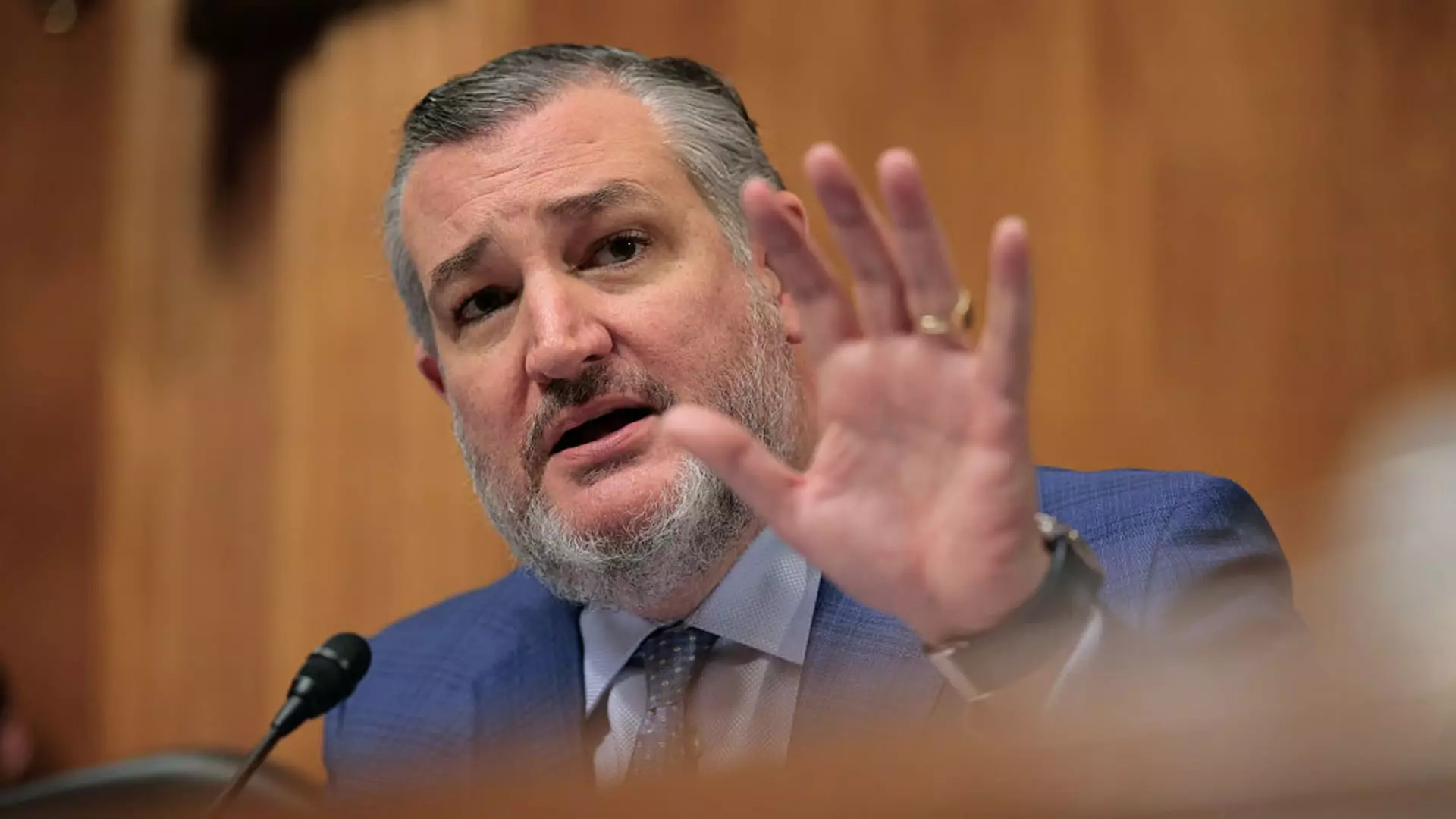In recent developments, political figures and regulatory officials have crossed a precarious line, turning what should be safeguarding of public interests into overt threats of censorship. The incident involving FCC Chairman Brendan Carr’s comments about late-night host Jimmy Kimmel exemplifies this troubling trend. Instead of fulfilling a neutral role focused on preserving fair communication standards, Carr’s language veered into coercion, hinting at punitive measures taken directly from the playbook of authoritarian regimes. His insinuation that ABC could lose its license for airing content deemed undesirable echoes the darkest fears about government overreach and suppression of dissenting voices.
This approach reflects an alarming shift toward politicizing broadcasting regulations. Instead of safeguarding transparency and diversity, regulators seem increasingly inclined to wield their authority as a weapon against voices that challenge certain partisan narratives. The implication is clear: media outlets or personalities that cross an ideological line risk severe consequences, blurring the critical line between regulation and censorship. Such rhetoric not only intimidates creators but imperils the fundamental principle that free speech should be protected from government coercion, regardless of political preferences.
Political Divergence and the Specter of Censorship
It’s noteworthy that this incident has sparked a divide among prominent conservatives and liberals alike. Senator Ted Cruz, typically aligned with right-wing priorities, expressed grave concerns about Carr’s language, emphasizing that government threats akin to those seen in mobster movies threaten the very fabric of free expression. Cruz’s critique underscores a core liberal tenet: that government power must be carefully checked to prevent abuse and to uphold constitutional freedoms. His warning about the slippery slope—where government censorship targets opinions it dislikes—is a reminder that consolidating regulatory authority risks turning the free press from a watchdog into a government pawn.
Conversely, figures like President Trump have publicly applauded Carr’s tough stance, illustrating how the political mainstream still often endorses aggressive tactics against media considered critical or opposing. Yet, the focus should be on the long-term consequences of allowing governmental speech codes to dictate media content. If political leaders or regulators decide selectively which voices should be silenced based on content, it creates an environment where media loses its role as a catalyst for democracy and becomes a tool of ideological conformity.
The Erosion of Democratic Norms and the Role of Public Interest
Carr’s invocation of the FCC’s license authority points to a broader misconception: that media regulation is inherently beneficial and always aligned with public interest. However, the line between protecting viewers and suppressing dissent becomes dangerously thin when used to silence satire, criticism, or unpopular opinions. The justification of “public interest” is too often exploited to serve partisan goals rather than democratic pluralism. When regulatory organs threaten to rescind licenses based on subjective interpretations of “appropriate conduct,” they threaten the foundational liberties that protect citizens from government overreach.
The temporary suspension of Kimmel’s show—pending further regulatory action—raises questions about due process and the potential for chilling effects. Comedy, satire, and political conversation are vital components of a healthy democracy; suppressing them on the basis of political expediency undermines the free exchange of ideas. While some argue that broadcasters should adhere to certain standards or responsibilities, empowering regulators to punish content that displeases political actors jeopardizes the very freedoms that shield us from authoritarian tendencies.
Potential Consequences for a Fragile Democracy
There is a genuine danger that these heavy-handed threats could set a precedent, leading to an increasingly politicized media environment. When officials frame content as unacceptable and threaten legal or regulatory consequences, it discourages journalists, commentators, and producers from exploring difficult or controversial issues. The risk is a homogenized media landscape, where only content approved by powerful interests is allowed to flourish.
A healthy liberal democracy relies on media pluralism—where diverse perspectives can coexist without fear of censorship. Regulatory overreach not only stifles dissent but also emboldens future attempts at suppression, eroding the checks and balances that safeguard free expression. When political figures justify threats of license revocation over speech that questions or criticizes certain ideologies, democracy itself becomes vulnerable to an erosion of core liberal principles. It’s imperative that regulators and policymakers remember their primary duty: to serve the public interest without subordinating it to the whims of political expediency.

